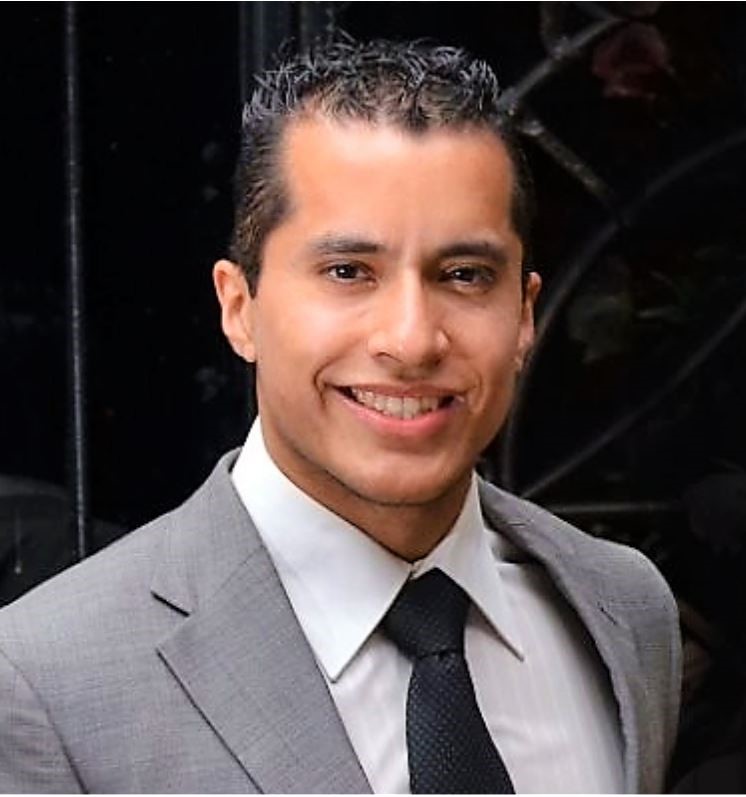Dr Benjamin SANCHEZ ANDRADE
Dr. Benjamin Sanchez is an Assistant Professor in the Department of Sustainable Technology and Built Environment at the Appalachian State University, who is also a senior researcher in the Circular Future Cities research module in the Future Cities Lab Global programme.
He is a Young Energy Professional (YEP) ascribed to the Energy Council of Canada (ECC). Benjamin's research is focused in the development and implementation of emergent technologies (BIM, CIM, IoT, Big Data, AI, LCA, 3D scan to BIM) for increasing the performance of construction building projects in terms of sustainability and Circular Economy. Benjamin has done scientific contributions for the valuation and monetisation of the environmental impacts of the residual life of building stock in North America.
His contributions add a Life Cycle Assessment (LCA) perspective to the decision-making methodology involved in adaptive reuse of buildings and building components, in order to contribute to sustainability and climate change through mitigation of CO2 emissions. Benjamin is a Civil Engineer with a doctorate in Civil Engineering from the University of Waterloo in Ontario, Canada.
He is originally from the city of Puebla in Mexico. Before initiating his doctoral studies, he worked as infrastructure construction supervisor and environmental inspector of the State of Puebla. Puebla is the fourth largest state in Mexico with 6.1 million inhabitants. Some of his duties were verifying the fulfillment of the applicable laws inside of the construction and environmental jurisdiction for new and existing buildings.
Benjamin has been active in the promotion and dissemination of his research work in important forums, through participating in international research academic experiences at Chalmers University in Sweden and ETH Zürich in Switzerland. Also, he has presented his original work in international conferences (ISARC, CIB WBC, CSCE, ASCE, NHICE), and he has collaborated in projects with international organisations such as the Energy Council of Canada (ECC), the Federation of Canadian Municipalities (FCM), and the United Nations Climate Change Conference COP23.
Research Interests
- Circular Economy in the construction industry
- Building Information Modeling
- Digital twins for buildings
- Automation in construction
- Life Cycle Engineering
- Optimisation algorithms
Publications
- Sanchez, Benjamin; Rausch, Christopher & Haas, Carl. (2022). Feature modeling for configurable and adaptable modular buildings. Advanced Engineering Informatics, https://doi.org/10.1016/j.aei.2021.101514 , [Journal Impact Factor (2021): 5.603, JCR Quartile (2021): Q1]
- Sanchez, Benjamin; Rausch, Christopher; Haas, Carl; & Hartmann, Timo. (2021). A framework for BIM-based disassembly models to support reuse of building components. Resources, Conservation and Recycling Journal, https://doi.org/10.1016/j.resconrec.2021.105825 [Journal Impact Factor (2020): 10.204, JCR Quartile (2020): Q1]
3. Rausch, Christopher; Sanchez, Benjamin & Haas, Carl. (2021). Topology optimization of architectural panels to minimize waste during fabrication. Journal of Construction Engineering and Management ASCE, https://doi.org/10.1061/(ASCE)CO.1943-7862.0002089 [Journal Impact Factor (2020): 3.951, JCR Quartile (2020): Q1]
- Sanchez, Benjamin; Rausch, Christopher; Haas, Carl; & Saari, Rebecca. (2020). A selective disassembly multi-objective optimization approach for adaptive reuse of building components. Resources, Conservation and Recycling Journal, 154(104605). DOI: https://doi.org/10.1016/j.resconrec.2019.104605 [Journal Impact Factor (2020): 10.204, JCR Quartile (2020): Q1]
- Sanchez, Benjamin; Rausch, Christopher & Haas, Carl. (2019). Deconstruction programming for adaptive reuse of buildings. Automation in Construction, 107(102921), DOI: https://doi.org/10.1016/j.autcon.2019.102921 [Journal Impact Factor (2020): 7.700, JCR Quartile (2020): Q1]
- Sanchez, Benjamin; Esnaashary Esfahani, Mansour & Haas, Carl. (2019). A methodology to analyze the net environmental impacts and building’s cost performance of an adaptive reuse project: a case study of the Waterloo County Courthouse renovations, Environment Systems and Decisions. 39(4), 419-438, DOI: https://doi.org/10.1007/s10669-019-09734-2 [Journal Impact Factor (2020): 2.41, SJR Quartile (2020): Q2]
- Eray, Ekin, Sanchez, Benjamin, & Haas, C. (2019). Usage of interface management system in adaptive reuse of buildings. Buildings, 9(5), 105-118. DOI: https://doi.org/10.3390/buildings9050105 [Journal Impact Factor (2019): 2.635, SJR Quartile (2019): Q1]
- Sanchez, Benjamin, & Haas, Carl. (2018). A novel selective disassembly sequence planning method for adaptive reuse of buildings. Journal of Cleaner Production, 183, 998-1010. DOI: https://doi.org/10.1016/j.jclepro.2018.02.201 [Journal Impact Factor (2020): 9.297, JCR Quartile (2020): Q1]
- Sanchez, Benjamin, & Haas, Carl. (2018). Capital project planning for a circular economy. Construction Management and Economics, 1-10. DOI: https://doi.org/10.1080/01446193.2018.1435895 [Journal Impact Factor (2019): 3.433, SJR Quartile (2019): Q1]
Education
- Doctorate in Civil Engineering
- Master in Construction Project Management
- Bachelor in Civil Engineering
Contact
- Linkedin: external page Benjamin Sanchez Andrade
- Facebook: external page Benjamin Sanchez Andrade
Research interests
- Circular economy in the building sector
- Materials Flows and Stocks
- Environmental Impacts
